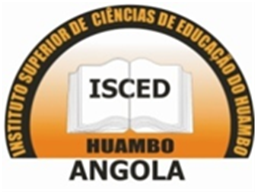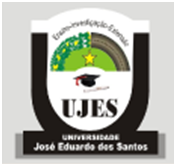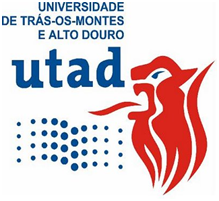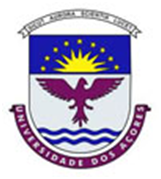Peter Nijkamp Research Award
Elisabete Martins
RSAI Newsletter November 2013 is now online!
Dear all,
The new RSAI Newsletter November 2013 can now be found under
http://regionalscience.org/images/PDF/Newsletter%202013%20November.pdf
Postgraduate Course “Decision Support Methods on Territorial Policies”, 12-17 December 2013, Huambo, Angola
Program
|
Day |
Topic |
Professor |
|
|
12 Dec. |
Choice Experiment Method |
Lívia Madureira |
|
|
13 Dec. |
Factorial Design, Data Collection |
Lívia Madureira |
|
|
14 Dec. |
Spatial interaction model of land use for Hedonic Evaluation of Territorial Policies |
Tomaz Dentinho |
|
|
16 Dec. |
Treatment of Data |
Lívia Madureira |
|
|
17 Dec. |
Interpretation of Results |
Lívia Madureira |
Professores
Prof. Dr. Lívia Madureira, University of Trás-os-Montes e Alto Douro, Portugal
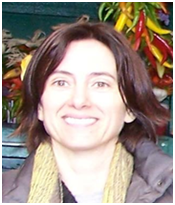
PhD in Agricultural Economics and Assistant Professor at the University of Trás-os- Montes e Alto Douro. Researcher effective CETRAD Center ( Transdisciplinary Studies for Development). Expert on economic valuation of environmental public goods and externalities. She has participated in interdisciplinary research projects and has extensive experience in European research projects under FP6 and FP7 programs and research networks such as COST E45. Its activities also include teaching in the area of economics and economics and management of the environment and sustainability, guidance of master's and doctoral students, organization and teaching of doctoral seminars and consulting activity in the context of environmental impact studies. She is currently coordinating a study for the Joint Research Centre of the EU in the field of environmental enhancement and two projects with national funding in the areas of economics of ecosystem services and innovation in rural areas.
Prof. Dr. Tomaz Dentinho, University of Azores, Portugal
 Tomaz Ponce Dentinho holds a PhD in Regional Economics from the University of Newcastle (1994), and is a lecturer at the University of the Azores. His teaching and research have focused on the topics of regional science, environmental economics and agricultural economics. Coordinates research and postgraduate teaching in Regional Sustainable Development, with projects and works on integrated water management, renewable energy, management and spatial planning, land farming systems, economic valuation of environmental resources and operational models economic - environmental. It has done work on cooperation with Angola, Timor, Guinea-Bissau, São Tomé and Cape Verde. Since 2008, he is president of the Portuguese Association for Regional Development (www.apdr.pt). And since 2011, is the Executive Director of the Regional Science Association International (www.regionalscience.org). Parte inferior do formulário
Tomaz Ponce Dentinho holds a PhD in Regional Economics from the University of Newcastle (1994), and is a lecturer at the University of the Azores. His teaching and research have focused on the topics of regional science, environmental economics and agricultural economics. Coordinates research and postgraduate teaching in Regional Sustainable Development, with projects and works on integrated water management, renewable energy, management and spatial planning, land farming systems, economic valuation of environmental resources and operational models economic - environmental. It has done work on cooperation with Angola, Timor, Guinea-Bissau, São Tomé and Cape Verde. Since 2008, he is president of the Portuguese Association for Regional Development (www.apdr.pt). And since 2011, is the Executive Director of the Regional Science Association International (www.regionalscience.org). Parte inferior do formulário
Applications
You can send your application or request information directly to Tomaz Dentinho, This email address is being protected from spambots. You need JavaScript enabled to view it.This email address is being protected from spambots. You need JavaScript enabled to view it., if you do not live in Angola or to Caesar Pakissi, This email address is being protected from spambots. You need JavaScript enabled to view it.This email address is being protected from spambots. You need JavaScript enabled to view it., if you live in Angola.
Fee
150US$
Venue
The Higher Institute of Education Sciences (ISCED) of Huambo, Angola
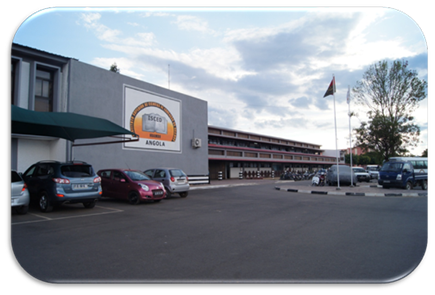
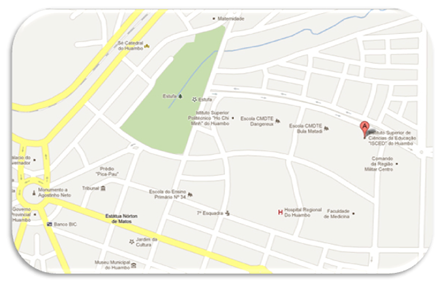
Organization and Sponsors
SEE IN PORTUGUESE (pdf)
Call for papers | 10th World Congress of the RSAI, May 26-30, 2014, Bangkok, Thailand

The Regional Science Association International (RSAI) invites regional scientists, policy makers and researchers of related disciplines to participate in the 10th World Congress. The Congress will be hosted by the Faculty of Architecture and Planning, Thammasat University, Bangkok. It will be held at the Imperial Queen’s Park Hotel in Bangkok, Thailand, May 26-30, 2014 on the theme of
Socioeconomic Integration and Transformation: Reshaping Local, Regional, and Global Spaces
The Congress will feature several world-renowned keynote speakers on cutting-edge urban and regional science and policy issues, expert panels, research presentations and posters. It will be attended by 500 delegates from the worldwide community of regional scientists.
Research topics related to the theme of the congress are particularly welcome, but the conference will be open to other topics within the broader contours of the regional science, urban and regional studies, geographical sciences and planning, and development. Anticipated sub-themes of the congress include the following:
-
Emerging challenges for regional development
- Vision and management of sustainable cities
- Energy, development, and sustainability
- Rural and local development
- Accessibility, infrastructure and regional economic growth
- Social capital and regional development
- Agglomeration, clusters, congestion and policy
- Crisis of public finances, governance and regional development
- Globalization and regional competitiveness
- Cross-border cooperation and developmentMigration, cultural networks and regional development
- Foreign direct investmentSocial segregation, poverty and social policy
- Spatial labor marketsClimate change and sustainable regional development
- Entrepreneurship, networks and innovationInnovation, knowledge economy and regional development
- Geographical information science and spatial analysis
- Spatial econometrics
- New frontiers in regional science: theory and methodology
- Infrastructure, transportation and communication
- Land use, real estate and housing markets
- Facility location modeling
- Tourism, cultural industries and regional development
- Urban governance and cities regeneration
- The computable city
- City systems and systems of cities
- Spatial organization and social media
- Territorial marketing
- Advances in I-O and CGE modeling
- Food security
- Global cities
- Southeast Asian regional economic integration
- Politics, ethnicity, and empowerment
We invite formal paper presentations as well as posters (deadline of December 1st, 2013). Organizers of special session are also welcome. The abstract submission portal is now open, along with the congress registration system. Full information on the venue, abstract submission, registration, schedule of events, accommodation and travel information is posted at http://www.2014worldcongress.regionalscience.org. Delegates will soon be able to register for workshops and tutorials.
Publication opportunities will be available for papers accepted by the Program Committee. We plan to edits volume in the new book series published by Springer on New Frontiers in Regional Science: Asian Perspectives. All manuscript submitted for possible publication in this series will be subjected to the customary peer-review process. Also, a select number of manuscripts will be invited for publication in the international RSAI Journals Papers in Regional Science andRegional Science Policy and Practice.
Feel free to contact the secretariat of the Congress at This email address is being protected from spambots. You need JavaScript enabled to view it.This email address is being protected from spambots. You need JavaScript enabled to view it. for further information. We look forward to welcoming you in the dazzling city of Bangkok in May 2014.
Jean-Claude Thill, RSAI President
Tomaz Dentinho, RSAI Executive Director
Job Position | Assistant Professor Housing and Real Estate Markets at the University of Groningen
Assistant Professor Housing and Real Estate Markets (1,0 fte) (213213)
Organisation
The Faculty of Spatial Sciences at the University of Groningen (RUG) consists of 85 members of staff and focuses on high quality teaching and research in the fields of real estate, economic and cultural geography, spatial planning and demography. The Faculty is responsible for the Bachelor Geography and Planning. The Assistant Professor's research and teaching will be related to two departments in the Faculty.
The Department of Economic Geography has a research agenda which centers on issues like real estate, regional labour markets, regional development, entrepreneurship and innovation. The Department is responsible for the Master of Economic Geography and the Master of Real Estate Studies. The research of the Department of Demography / Population Research Centre is carried out within the broad theme 'Population and Well-Being in Context'. The Department is responsible for the Master Population Studies.
Job description
The Assistant Professor will contribute to research and teaching in the Faculty of Spatial Sciences. The main research focus is on the quantitative analysis of housing and real estate markets, project development and/or financing also in a comparative context between countries, and the behaviour of individuals and households within these markets in the sense of residential mobility and transitions between housing types or tenures. Housing and real estate markets are shaped by the dynamics of where households and firms locate and relocate and relates to issues like population decline, aging, well-being, household formation and dissolution, regional economic development, infrastructure, landscape and environment and real estate markets itself. All these issues are present in the faculty research theme Towards Well-being, Innovation and Spatial Transformation (tWIST) and it is expected that the Assistant Professor contributes to overarching research themes in t(WIST) from the perspective of housing and real estate markets with the explicit goal of stimulating multidisciplinary publications and research proposals.
The Assistant Professor's main teaching task will be in courses in the Master Real Estate Studies and in the Master Population Studies. The Assistant Professor will invest 60% of his/her time in research, and another 40% in teaching.
Qualifications
We are looking for candidates who meet the following requirements:
- PhD in Real Estate, Economics, Finance, Economic Geography, or Demography
- publications in international peer-reviewed academic journals in the field of quantitative research on housing
- commitment to excellent teaching
- has a strong drive to share ideas with, and to invest in colleagues and students
- meets the obligatory requirement for the Basic Teaching Qualification (BKO)
- fluent in English; mastering Dutch or willing to learn Dutch.
Competences of an Assistant Professor:
- conceptual ability
- self-reflection
- presentation
- result orientation.
- Conditions of employment
The University of Groningen offers a salary dependent on qualifications and relevant work experience up with a minimum of € 2,919 gross per month (scale 10) to a maximum of € 5,070 gross per month (scale 12) for a full-time position excluding 8% holiday allowance and 8.3% end-of-year bonus and participation in a pension scheme for employees. Favorable tax agreements may apply to non-Dutch applicants. The conditions of employment comply with the Collective Labour Agreement for the University of Groningen. The full time appointment is temporary for a specified period of three years, the appraisal interview is at the end of the first year.
Starting date: as soon as possible.
The first interviews will take place on 22 November 2013 and 28 November 2013. Selected candidates will receive an invitation after 11 November 2013.
Application
You may apply for this position before 1 November 2013 Dutch local time by means of the application form (click on "Apply" below on the advertisement on the university website). Applications must include curriculum vitae, two letters of recommendation, one current working paper, and any available teaching evaluations.
Acquisition is not appreciated.
Information
For information you can contact:
Prof. A.J. van der Vlist, Professor Real Estate, +31 50 3633897, This email address is being protected from spambots. You need JavaScript enabled to view it.This email address is being protected from spambots. You need JavaScript enabled to view it.
Prof. C.H. Mulder, Professor Demography, +31 50 3634549, This email address is being protected from spambots. You need JavaScript enabled to view it.This email address is being protected from spambots. You need JavaScript enabled to view it.
Job Position | Assistant Professor of Real Estate at the University of Groningen
Assistant Professor of Real Estate (1,0 fte) (213214)
Organisation
The Faculty of Spatial Sciences at the University of Groningen (RUG) consists of 85 members of staff and focuses on high quality teaching and research in the fields of real estate, economic geography, spatial planning and demography. The Faculty is responsible for the Bachelor Geography and Planning.
The Department of Economic Geography has a research agenda which centers on issues like real estate, regional labour markets, regional development, entrepreneurship and innovation. The Department is responsible for the Master of Economic Geography and the Master of Real Estate Studies.
Job description
The Assistant Professor will contribute to research and teaching in real estate finance & economics in the Department of Economic Geography. The post will build on existing expertise with the Department. Current research activities on real estate in the Department include housing, commercial real estate market institutions and land economics. Opportunities for undertaking international research-led collaboration in the Department are excellent. The Assistant Professor's main teaching task will be in the master Real Estate Studies' courses Real Estate Investment and International Real Estate Markets. The Assistant Professor will invest 60% of her/his time in teaching and another 40% in academic research.
Qualifications
We are looking for candidates who meet the following requirements:
- PhD in Economics, Economic Geography or Finance
- publications in international peer-reviewed academic journals on real estate finance & economics
- commitment to excellent teaching in real estate
- team player and a strong drive to inspire colleagues and students
- the ability to attract funding for research projects
- meets the obligatory requirement for the Basic Teaching Qualification (BKO)
- fluent in English and willing to learn Dutch.
Competences of an Assistant Professor:
- conceptual ability
- self-reflection
- presentation
- result orientation.
- Conditions of employment
The University of Groningen offers a salary dependent on qualifications and relevant work experience up with a minimum of € 2,919 gross per month (scale 10) to a maximum of € 5,070 gross per month (scale 12) for a full-time position excluding 8% holiday allowance and 8.3% end-of-year bonus and participation in a pension scheme for employees. Favorable tax agreements may apply to non-Dutch applicants. The conditions of employment comply with the Collective Labour Agreement for the University of Groningen. The full-time appointment of this Assistant Professor is in first instance a temporary position. Given the future retirement of one of the staff members there is a possibility of a permanent appointment after two years at constant business conditions and positive performance reviews.
Starting date: as soon as possible.
The first interviews will take place in the week of 18 November 2013. Selected candidates will receive an invitation after 11 November 2013.
Application
You may apply for this position before 1 November 2013 Dutch local time by means of the application form (click on "Apply" below on the advertisement on the university website). Applications must include curriculum vitae, two letters of recommendation, one current working paper, and any available teaching evaluations.
Acquisition is not appreciated.
Information
For information you can contact:
Prof. Arno J. van der Vlist, Professor Real Estate, +31 50 3633897, This email address is being protected from spambots. You need JavaScript enabled to view it.This email address is being protected from spambots. You need JavaScript enabled to view it.
Prof. Jouke van Dijk, Chairman of the Department of Economic Geograpy, +31 50 3633897, This email address is being protected from spambots. You need JavaScript enabled to view it.This email address is being protected from spambots. You need JavaScript enabled to view it.
Call for papers | 13th International Workshop on Spatial Econometrics and Statistics, 15-16 April, Toulon, France
13th International Workshop Spatial Econometrics and Statistics
15 and 16 of April 2014
The Laboratoire d’Economie Appliquée au Développement (LEAD) and the Faculty of Economics of the University of Toulon organize the 13th edition of the Spatial Econometrics and Statistics Workshop in Toulon, on the 15th and the 16th of April 2014.
The aim of this Workshop is to promote and develop scientific exchange between economists, econometricians, statisticians, mathematicians, urban planners and geographers on spatial econometrics and statistics and on their applications on regional and urban economics. This workshop strongly encourages exchanges between senior and junior researchers as well as Ph.D. students involved in spatial statistics and econometrics.
This 13th edition welcomes theoretical and empirical contributions with methodological advances in spatial econometrics and statistics. A particular emphasis will be given to particular issues and applications in the fields of urban economics, land use and climate or environmental change.
The invited speakers of the Workshop are:
Pr. James LESAGE, Texas State University, USA.
Pr. Raymond FLORAX, Purdue University USA & VU University Amsterdam, Holland.
Pr. Bernard FINGLETON, Cambridge University, United Kingdom.
Organizer: Alexandra Schaffar (LEAD, Université de Toulon)
Scientific Committee
G. Arbia (Universita Cattolica del Sacro Cuore), C. Baumont (LEG, University of Bourgogne), M. Catin (LEAD, University of Toulon), R. Chakir (AgroParisTech), N. Debarsy (LEO, University of Orléans), M. Dimou (LEAD, University of Toulon), C. Ertur (LEO, University of Orléans), J. Le Gallo (CRESE, University of Franche-Comté), J. Mutl (EBS Business School, Frankfurt), R. Guillain (University of Bourgogne), A. Pirotte (ERMES, University of Panthéon-Assas), M. Pfaffermayr (University of Innsbruck, Austria), C. Thomas–Agnan (GREMAQ, University of Toulouse).
Organisation Commitee (LEAD, Université de Toulon)
D. Brécard, M. Brunetto, M. Catin, M. Dimou, N. Péridy, C. Van Huffel
Submissions
Completed papers or long abstracts (6 pages) should be submitted by uploading electronically, in pdf format, to the following address: http://sew2014.univ-tln.fr/
Submission deadline: 15th of January 2014.
Notification of acceptance of papers: 15th of February 2014
Contact : Alexandra Schaffar : This email address is being protected from spambots. You need JavaScript enabled to view it.
Job Position | Assistant Professor Ecological Economics and Sustainability The Department of Forestry and Natural Resources at Purdue University in West Lafayette, Indiana
The Department of Forestry and Natural Resources at Purdue University in West Lafayette, Indiana, is seeking applicants for an assistant professor of ecological economics and sustainability. This is a tenure-track, academic-year appointment with research, extension, and teaching responsibilities.
RESPONSIBILITIES: The successful candidate will be expected to develop an internationally recognized research and extension program in ecological or natural resource economics with a focus on sustainable forest ecosystems and associated environmental/ecosystem services. Expected teaching responsibilities include an upper division undergraduate course in natural resource economics and an alternate year graduate course in the candidate’s area of expertise.
Purdue University’s Department of Forestry and Natural Resources is a broad environmental department, emphasizing interdisciplinary approaches across a spectrum of research areas including ecology, forest biology, wildlife, fisheries and aquatic sciences, wood science, genetics and human dimensions of natural resource management ( http://www.ag.purdue.edu/fnr/). The department hosts the Hardwood Tree Improvement and Regeneration Center, in partnership with the U.S. Forest Service, state, and non-governmental groups. Interaction with faculty in the Department of Agricultural Economics, the Center for the Environment, Purdue Water Community and Purdue Climate Change Research Center is ongoing and encouraged. As the land grant university in the state of Indiana, Purdue University has integrated programs in discovery, learning and engagement (extension). The College of Agriculture embodies this land-grant mission by providing exceptional graduate and undergraduate education, stretching the frontiers of science through innovative research, and providing solutions to societal challenges that help people improve their lives and livelihoods.
QUALIFICATIONS: A Ph.D. in ecological, environmental or natural resource economics, agricultural economics, or a closely related discipline. Undergraduate or graduate training in the field of natural resources is desired, but not mandatory. Extension and/or teaching experience; the potential to develop a vigorous, extramurally funded research program; and a commitment to extension, research, and teaching are required. A strong publication record and post-doctoral or professional experience are desirable.
SALARY: Salary will be commensurate with experience and training.
CLOSING DATE: 1 November 2013, or until filled.
APPLICATION PROCESS: Submit: 1) letter of application; 2) formal one-page statements of research and extension interests; 3) curriculum vitae; 4) three letters of references; and 5) one writing sample. Questions may be directed to the Search Committee Chair, Dr. W.L. Mills, via telephone (765-494-3575) or email (This email address is being protected from spambots. You need JavaScript enabled to view it.This email address is being protected from spambots. You need JavaScript enabled to view it.). Application packets should be emailed (preferred) to Marlene Mann (This email address is being protected from spambots. You need JavaScript enabled to view it.This email address is being protected from spambots. You need JavaScript enabled to view it.) or addressed to Ecological Economics and Sustainability Search Committee, Purdue University, Department of Forestry and Natural Resources, 715 West State Street, West Lafayette, Indiana 47907-2061. A background check will be required for employment in this position.Purdue University is an equal opportunity/equal access/affirmative action employer fully committed to achieving a diverse workforce.
------------------
Benjamin M. Gramig
Associate Professor
Dept. of Agricultural Economics
Purdue University
Job Position | Assistant Professor, Centro de Investigacion y Docencia Economicas (CIDE) Economics
Section: International:Full-Time Academic (Permanent, Tenure Track or Tenured)
Location: Aguascalientes, Aguascalientes, Mexico
00 -- Default: Any Field
Q -- Agricultural and Natural Resource Economics; Environmental and Ecological Economics
Q5 -- Environmental Economics
R -- Regional, Real Estate, and Transportation Economics
R1 -- General Regional Economics
Deadline Date: 11/29/2013
JOE ID Number: 201310_399142
Full Text of JOE Listing:
Applicants must hold a Ph.D. in economics, agricultural economics or applied economics from an accredited institution by August 2014. Candidates are expected to provide evidence of potential to develop an outstanding record of scholarly research in Environmental, Regional, or Urban Economics and to publish in top-field journals in economics. Research on Latin-American issues is preferred but not necessary. The teaching load is at most three courses per year at undergraduate and master level.
Application Instructions:
Send job market paper, a CV, and three letters of recommendation to This email address is being protected from spambots. You need JavaScript enabled to view it. before November 29, 2013.
Email for Applications:This email address is being protected from spambots. You need JavaScript enabled to view it.This email address is being protected from spambots. You need JavaScript enabled to view it.
More information: http://www.aeaweb.org/joe/listing.php?JOE_ID=201310_399142
Job Position | Research Fellow or Fellow, Arndt-Corden Department of Economics, Australian National University
Research Fellow or Fellow
Arndt-Corden Department of Economics
Australian National University
(Application deadline on January 02, 2014)
The Arndt-Corden Department of Economics within the Crawford School of Public Policy of the College of Asia and the Pacific is a leading research unit focusing on research and teaching on development economics. We are seeking to appoint a Research Fellow (Level B) or Fellow (Level C). The appointee will be expected to carry out frontier research on applied economics focused on Indonesia and in comparison with Asia - Pacific regions, and participate in the management of the Indonesia Project and the Bulletin of Indonesian Economic Studies. Duties will include teaching as well supervision of PhD students.
Applicants should have a PhD in economics and possess research experience, and should provide a detailed statement of the research project(s) they intend to pursue during the initial three years.
To be considered for this position, applicants must address the selection criteria for the level that they are applying for, accompanied by a detailed CV and a list of at least three referees.
For enquiries about this position please contact Professor Peter Warr on (02) 6125 2682 or email This email address is being protected from spambots. You need JavaScript enabled to view it.This email address is being protected from spambots. You need JavaScript enabled to view it.
All applications must be submitted at ANU Jobs ( http://jobs.anu.edu.au/PositionDetail.aspx?p=3558) by January 2, 2014.
Job Position | Fellow or Associate Professor, Arndt-Corden Department of Economics, Australian National University
Fellow or Associate Professor
Arndt-Corden Department of Economics
Australian National University
(Application deadline on January 02, 2014)
The Arndt-Corden Department of Economics within the Crawford School of Public Policy of the College of Asia and the Pacific is a leading research unit focusing on development economics research and teaching. We are seeking to appoint a Fellow (Level C) or Associate Professor (Level D). The appointee will be expected to carry out frontier research on the economics of Asia and the Pacific, specifically Indonesia, become a member of – and play a leadership role in – the management of the Bulletin of Indonesian Economic Studies’ editorial team, and participate in the management of the Indonesia Project. Duties will include teaching as well as supervision of PhD students.
Applicants should have a PhD in economics and possess research experience, and should provide a detailed statement of the research project(s) they intend to pursue during the initial three years.
To be considered for this position, applicants must address the selection criteria for the level that they are applying for, accompanied by a detailed CV and a list of at least three referees.
For enquiries about this position please contact Professor Peter Warr on (02) 6125 2682 or email This email address is being protected from spambots. You need JavaScript enabled to view it.This email address is being protected from spambots. You need JavaScript enabled to view it.
All applications must be submitted at ANU Jobs ( http://jobs.anu.edu.au/PositionDetail.aspx?p=3558) by January 2, 2014.
About Us
The Regional Science Association International (RSAI), founded in 1954, is an international community of scholars interested in the regional impacts of national or global processes of economic and social change.

